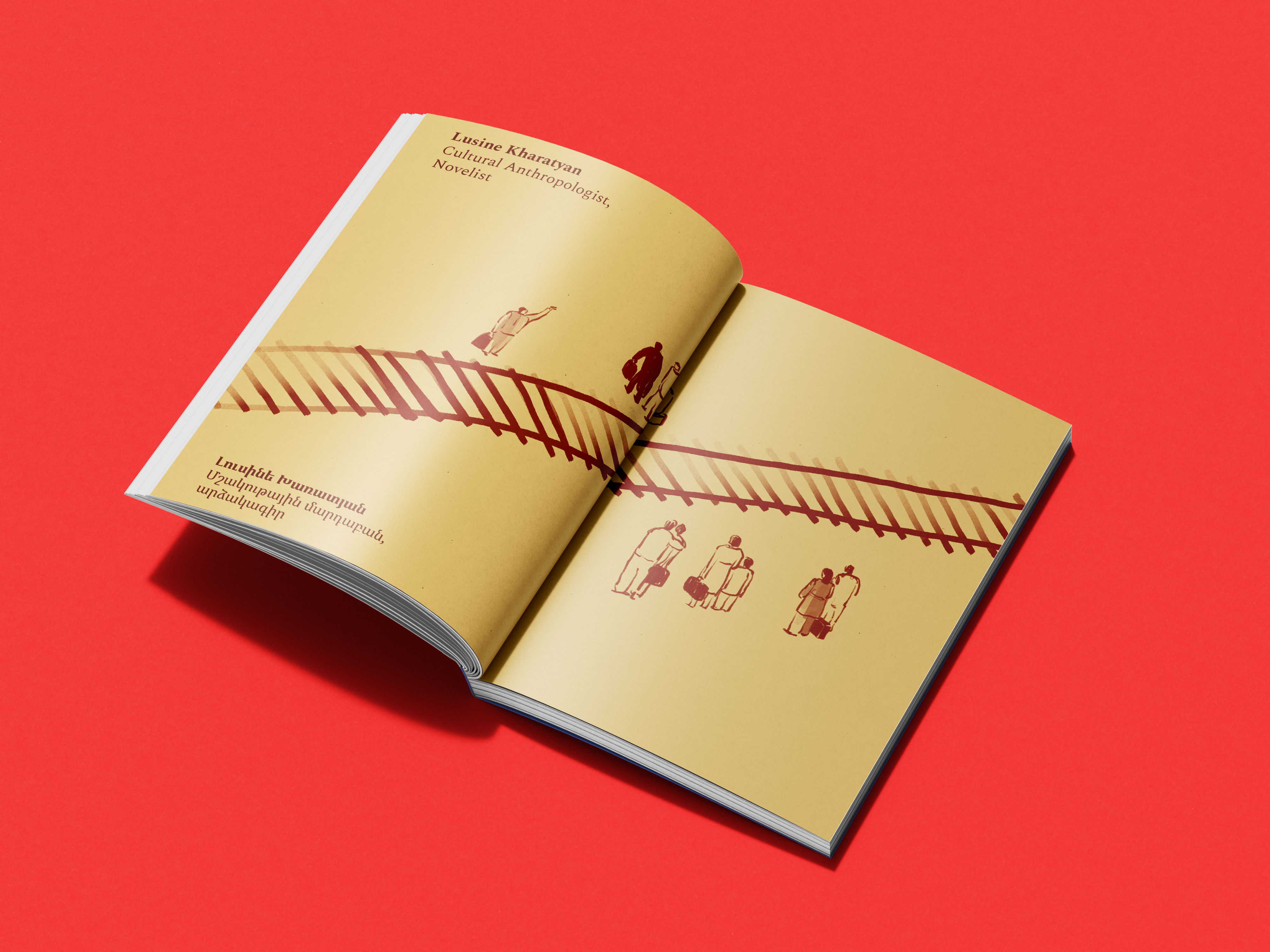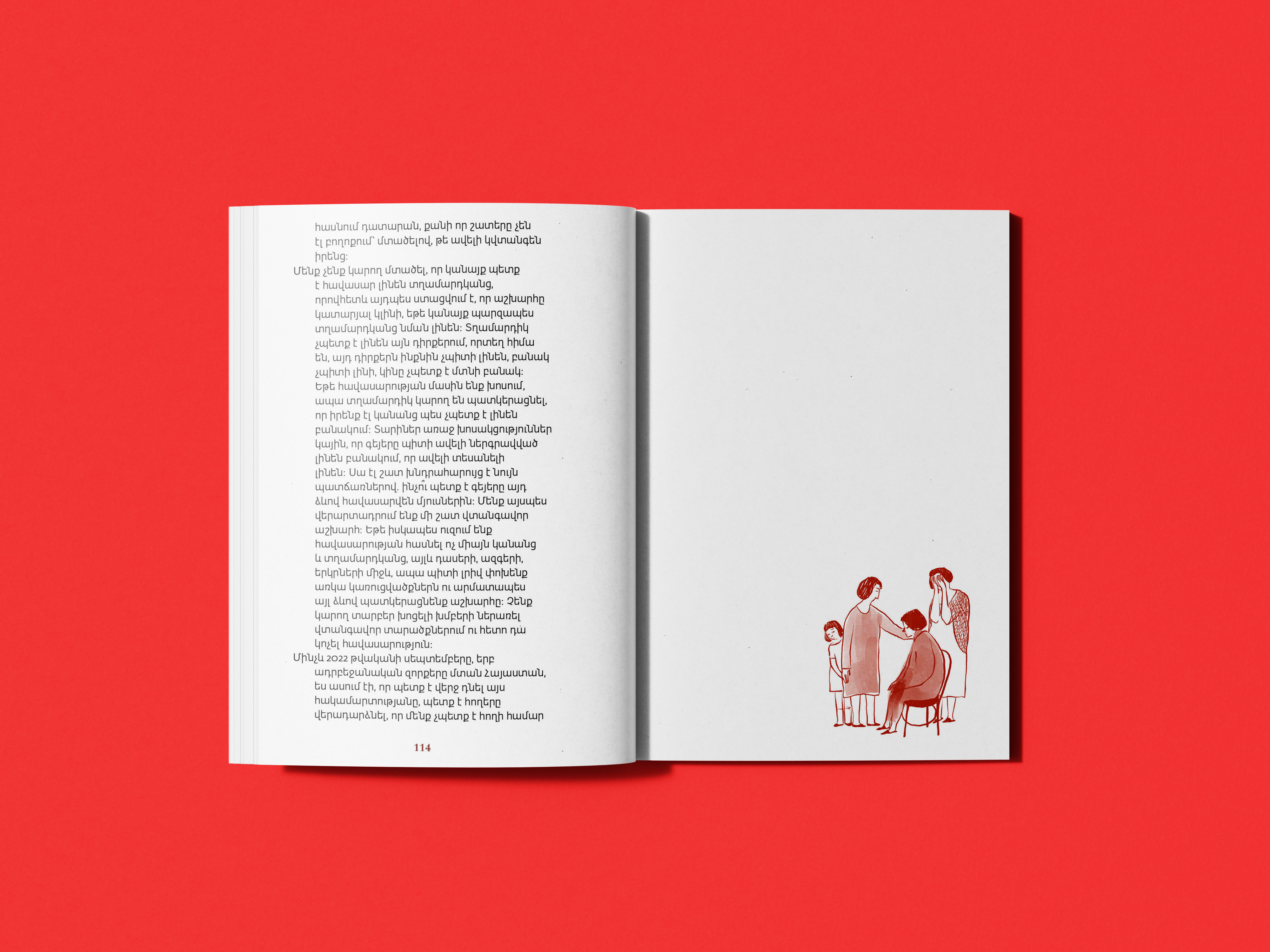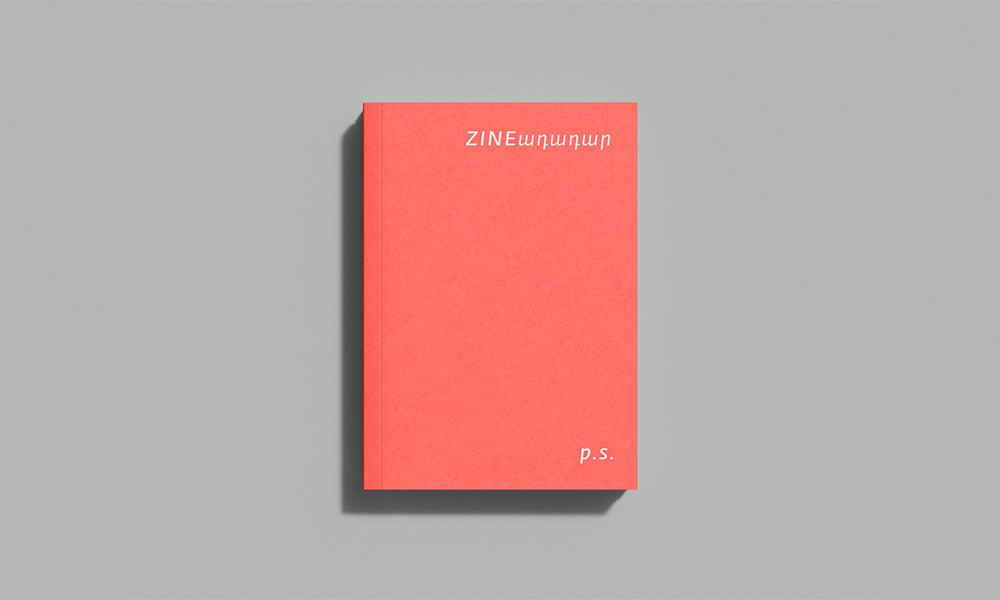Amid the nine-month blockade of Artsakh/Nagorno-Karabakh and its devastating consequences, the new wave of migration and post-war chaos, the latest, and final edition of the “ZINEadadar” project—"P.S.," has been released. This extensive publication delves into the topic of cultural rights, which, especially in war and conflict zones, tend to be overshadowed by civil, social, economic, and political rights.
In these challenging times, the rights to life and security understandably take precedence for many people. However, this publication seeks to emphasize that human rights are universal, interconnected, and mutually reinforcing. It underscores the significance of cultural rights as a means to both prevent and address armed conflicts as well as contribute to overcoming the latter's consequences . "P.S." breaks down the common misconception that cultural rights concern solely to artists and cultural practitioners. Instead, it argues and supports the idea that cultural rights are relevant to and impact everyone.

The authors of the zine, each possessing expertise in various aspects of cultural rights, employ analytical texts to address the pivotal role played by education, engagement in cultural life, scientific advancements and their applications, significance of the preservation identity and memory within the complex context of war, conflict, post-war turmoil, blockade, and militarism, as well as the vitality of safeguarding the rights of artists and the harnessing the power of art and culture as a means to transcend the challenges posed by war and conflict.
Cultural anthropologist and novelist Lusine Kharatyan provides valuable insights into Armenia's politics of memory in the post-independence era, with a keen exploration of the dominant narratives encompassing the genocide and the Karabakh conflict. Her analysis delves into the intricate world of memory landscapes, the significance of monuments, naming practices, and the complexities and dilemmas surrounding the preservation of cultural heritage during the turbulent periods of the first and second Karabakh wars.
Narine Vardanyan, the head of leadership development at the "Teach for Armenia '' Foundation, reflects on her life journey, which began with the challenges she encountered in her hometown of Nerkin Karmiragbyur village during her school years. She shares how these experiences continued while she pursued her education at Yerevan State University, ultimately shaping her path as a teacher who not only shares her knowledge, but also unconditionally supports her students.
Serine Avetisyan, an expert in education, provides an insightful analysis of the challenges that the Armenian education system encounters in times of crisis. She delves into recurring problems, logistical hurdles in educational organization, and the critical aspect of ensuring access to education. Avetisyan pays particular attention to the role and responsibilities of the state, while also examining the measures it has taken to address these pressing issues.
Narine Vardanyan, head of education quality assurance at the International Scientific and Educational Center, National Academy of Sciences (Ph.D in Phiology), addresses the diminishing role of science in post-Soviet Armenia. She sheds light on the issues stemming from inadequate state support, inequalities in academic communities, and the pressing necessity for a comprehensive reassessment of the scientific sphere.
Nayiri Khachaturian, an art historian, curator, and the founding director of “AHA Collective”, engages in the role of art and culture in a reality profoundly transformed by the impact of war. Khachaturian underscores how the aftermath of the 2020 war has starkly exposed numerous shortcomings and challenges within the cultural policies of RA.

Within the context of post-war and conflict-affected environments, Tamar Shirinyan, a cultural anthropologist and researcher of feminist and queer theories, analyzes the prevailing gender roles posed to women. She critically examines the masculine landscape in Armenia, shedding light on the problematic issues of gender equality and the often underestimated potential of women in promoting dialogue and peace-building efforts.
The final publication of the "ZINEadadar" project, "P.S," along with the other bilingual editions of the series— "Zhengyalov Hats," "Diaries," and "Restless Suitcase," are accessible in both Armenian and English languages. Copies can be acquired at the "Cultural and Social Narratives Laboratory" NGO’s office or accessed online through the following link.
The illustrations for the "P.S" zine, which focuses on cultural rights, were created by Harutyun Toumaghyan.

